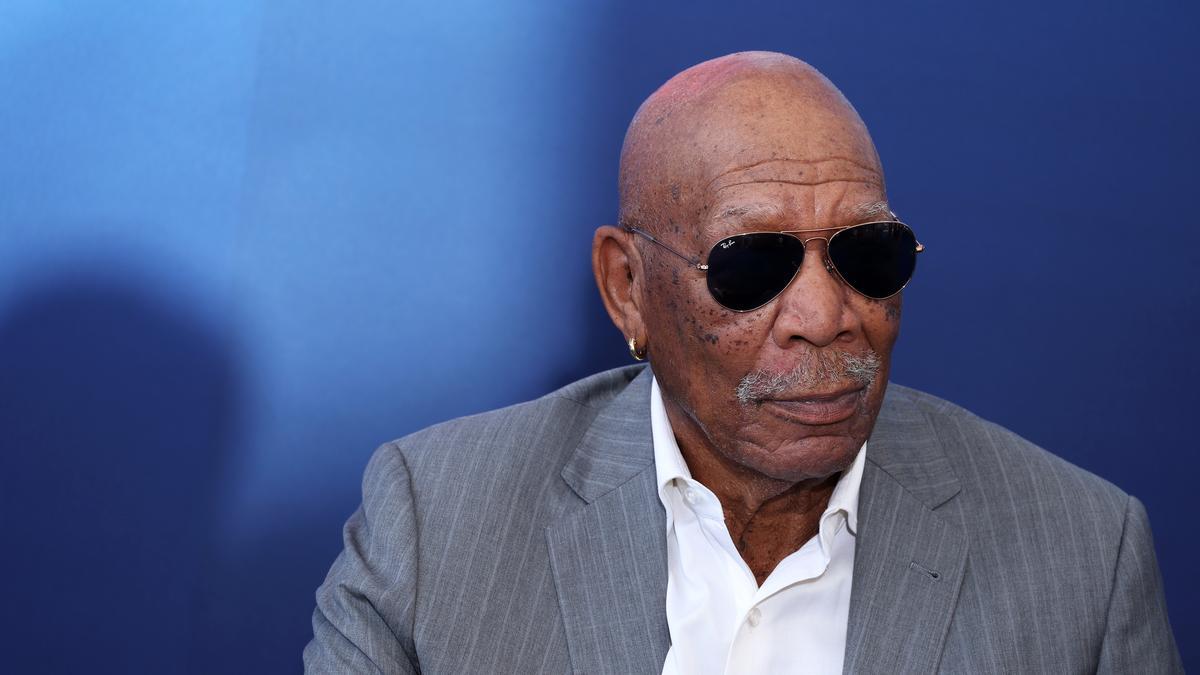
The iconic voice of Hollywood veteran Morgan Freeman has become the latest battleground in the ongoing debate about artificial intelligence in the entertainment industry. Freeman, known globally for his deep, resonant voice, recently took to social media to express his displeasure about AI imitations of his voice. He thanked his fans who have been vigilant in identifying and calling out unauthorized uses of these AI-generated imitations.
In his social media post, the veteran actor wrote, “Thank you to my incredible fans for your vigilance and support in calling out the unauthorized use of an A.I. voice imitating me. Your dedication helps authenticity and integrity remain paramount.” This call for support from Freeman highlights a growing discomfort among artists regarding the misuse of AI technologies that can replicate their voices without their consent.
Freeman’s concerns come at a time when AI voice imitations have become a contentious issue in the entertainment industry. Notably, Scarlett Johansson’s legal team recently demanded that OpenAI disclose how it created its AI personal voice assistant, Sky, which allegedly sounds strikingly similar to her own voice. Johansson revealed that she had been approached by OpenAI CEO Sam Altman last September with a request to use her voice for a conversational form of ChatGPT. She declined the offer for “personal reasons.”
The actress expressed her disappointment and anger in a statement released last month. She said, “I was shocked, angered, and in disbelief” that the AI company proceeded to use a voice extremely similar to hers even after she had refused to collaborate with them. Johansson’s case further emphasizes the ethical and legal concerns surrounding the use of AI to replicate voices without clear authorization.
.
The controversy doesn’t stop with Johansson. In April, Canadian rapper Drake faced backlash from the estate of late rapper Tupac Shakur for using an AI imitation of Shakur’s voice in his song “Taylor Made Freestyle,” which was perceived as a diss track aimed at fellow rapper Kendrick Lamar. Lawyer Howard King, representing Shakur’s estate, issued a cease-and-desist letter to Drake. King called the song a “blatant abuse of the legacy of one of the greatest hip-hop artists of all time.”
The dispute underscores a broader conversation about the implications of AI in the arts. As technology continues to advance, the replication of human voices through artificial intelligence raises serious questions about authenticity, consent, and the protection of a person’s unique vocal identity.
Freeman’s decision to address the issue publicly serves as a rallying cry for other artists who may be facing similar issues. It brings to light the importance of maintaining integrity and authenticity in an industry that is increasingly relying on artificial intelligence. His commendation of his fans’ “vigilance and support” underscores the role of the public in holding entities accountable for unauthorized use of AI-generated content.
The issue at hand is not just about technology but also about respect for artists’ individual identities and their creative contributions. It’s a reminder that while AI has incredible potential, it also has the power to infringe on personal identities and artistic legacies.
Moving forward, it will be crucial for industry stakeholders to establish clear guidelines and legal frameworks that protect artists from unauthorized AI imitations. This includes ensuring that AI companies seek explicit consent before using a person’s voice or likeness and that they provide transparent information on how these AI models are trained and used.
As AI continues to make its mark on various industries, these conversations are necessary to ensure a balance between innovation and respect for individual rights. Morgan Freeman’s stance is a significant step in advocating for this balance, reminding us that the core values of authenticity and integrity should never be compromised, no matter how advanced technology becomes.












